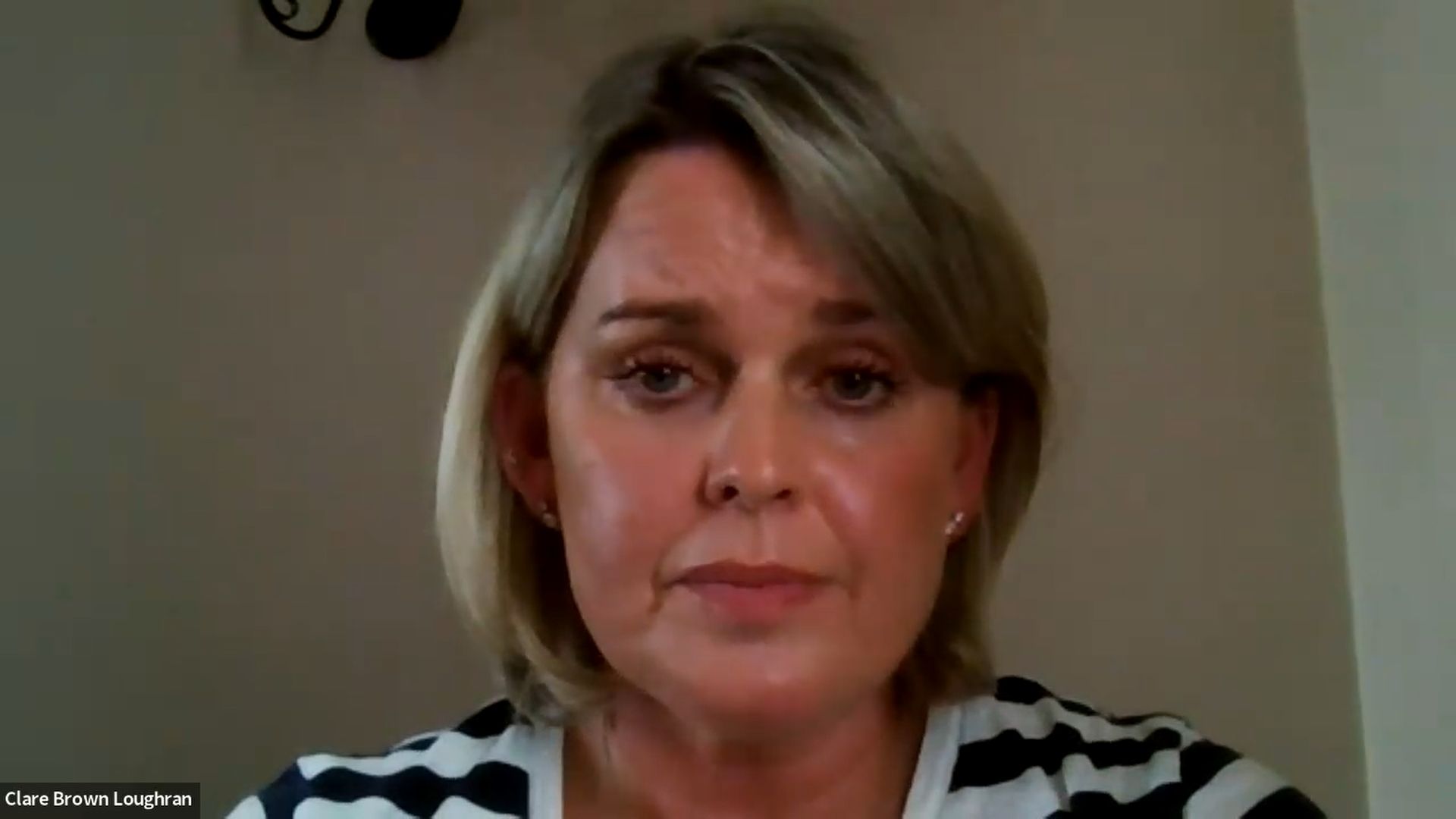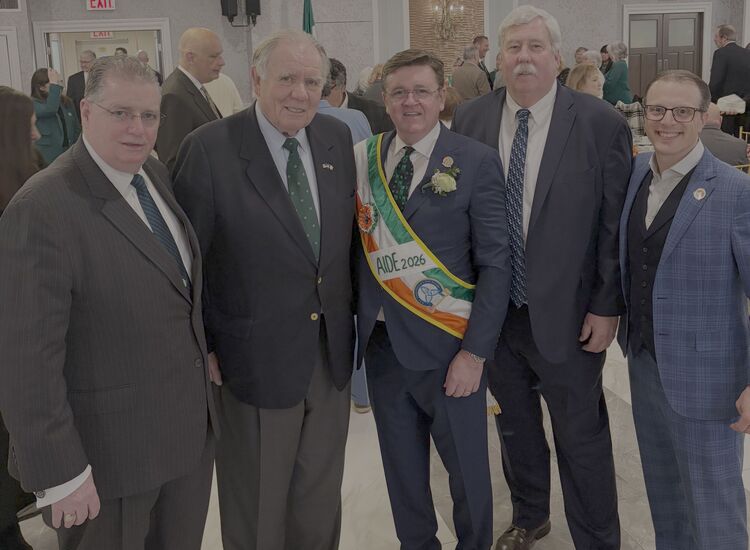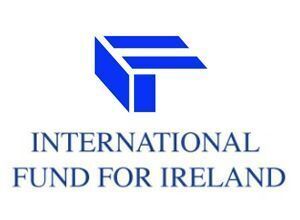“We don’t need sympathy we need justice” said a visibly angry Clare Brown Loughran, as she described how British Secretary of State for Northern Ireland Hilary Benn, who the family contends feigns sympathy for her mother Bridie Brown, lodged papers to take the case to the London Supreme Court.
A webinar on the Sean Brown murder case held on Saturday, May 31, heard that Benn had lodged the papers without notifying the family or its lawyers.
Brown Loughran was speaking in the live webinar broadcast hosted by the Ancient Order of Hibernians.
Other panelists included victim’s relative Roisin Read. Former Irish Consul General in New York Ciaran Madden represented the Irish government while Daniel Holder of the Committee for the Administration of Justice also participated.
The broadcast began with video of recent remarks by Tánaiste and Foreign Minister Simon Harris on the Sean Brown case, made in response to a parliamentary question asked by Paul Lawless TD of AONTU.
Harris said he had made it clear to Hilary Benn that the Irish government will only reach an agreement with Britain on legacy, on terms that “were human rights compliant and had the support of victims and their families."
Harris had told Benn, privately and publicly, that 87-year-old Bridie Brown had shown enormous strength in pursuing justice through every available channel "and I intend to pursue it also.”
Clare Brown Loughran began with breaking news that instead of complying with court orders directing a Public Inquiry into her father’s murder, and her mother’s appeal to “do the right thing,” the British had filed papers to take the case to London.
Both the Belfast High Court and Court of Appeals had ordered a Public Inquiry, holding that the ICRIR (Independent Commission for Reconciliation & Information Recovery) was incapable of providing an independent hearing that met the requirements of the European Convention on Human Rights. The British she said acted with “phenomenal disrespect” for her family by taking this legal action without notifying them or their legal counsel.
Sean Brown had been abducted and murdered as he locked up the Bellaghy Wolfe Tone Gaelic Athletic Club on May 12, 1997. No one has ever been convicted of this sectarian assassination, in which, according to a Hibernian statement following the webinar, "multiple British agents played a part."
The murder took place less than a year before the Good Friday Agreement, when the conflict was nearly over. Brown was not politically active.
Said the AOH statement: "The murder was committed shortly after DUP member Willie McCrea lost his Westminster seat to Martin McGuinness and threatened that nationalists 'would reap a bitter harvest.' The Brown family believes that Sean Brown was targeted 'as a warning to nationalists not to rise above their station.'
"The Brown family brought civil suits against both the British Ministry of Defense and Chief Constable, winning damages and a formal Court apology for the RUC’s inadequate investigation. They learned additional details from an Ombudsman Report. All legal attempts to answer questions about collusion were stalled by the British.
"More than 25 years after the murder, an Inquest hearing began. However the Coroner was forced to close their Inquest when the British blocked information about the role of British agents. The Coroner found that a Public Inquiry would be the only way for the Brown family to get the truth, and made a formal written request to then British Secretary Chris Heaton-Harris. Both the Belfast High Court and Court of Appeals have ordered Hilary Benn to commence an inquiry.
"These judgements held that the Independent Commission on Reconciliation and Information Retrieval (ICRIR), created by the ousted Conservatives and continued by the new Labour government was not credible, because it was not independent, did not allow adequate victim participation and gave the British a veto on revealing the role of British agents."
Brown Loughran concluded by saying “all her family wants is the truth."
Roisin Read’s two uncles were killed at Kelly’s Bar, Springfield Road Belfast on May 13th, 1972. A third man, Thomas McIlroy, was shot dead as he ran out to help the bomb victims. Although the gun and bomb attack was carried out by the Loyalist Ulster Volunteer Force, British authorities released press statements claiming it was an IRA bomb which exploded prematurely, thereby blaming her uncles John Moran and Gerard Clarke for their own murders.
The family, according to the AOH statment, had been fighting for decades to get the truth and their application for an inquest was granted in 2014.
"The inquest was handicapped because the British Ministry of Defense imposed a one hundred year ban on military records about the attack.
"As the inquest neared completion the family was hopeful of getting the truth. Then on May 1st last year, the Coroner announced that he was compelled by the British Legacy Act to terminate the Inquest without a judgement."
Read told the webinar participants that her family was “absolutely gutted” because they had been so close to justice.
"The British referred the family to the ICRIR. However the ICRIR would not allow them their own lawyers to apply for discovery and question witnesses on their behalf. Her family had gotten as far as they had only because of their solicitor Padraig O’Muirigh. They would get nothing like that from the ICRIR."
Ciaran Madden of the Department of Foreign Affairs represented the Irish government. He said that Tánaiste Simon Harris had raised Sean Brown’s case in his very first phone conversation with Hilary Benn, and had raised it repeatedly during meetings and conferences with the British thereafter. Only two days earlier ,Harris had spoken about the Brown case in the Dáil.
The Irish government’s position was that the Brown family must have access to an Article 2 compliant investigation and the only existing way to provide that is through a public inquiry. What the British have now is “not fit for purpose” for the family of Sean Brown or for other victims’ families.
A recent headline in the Irish Independent, which said Taoiseach Micheal Martin and British Prime Minister Keir Starmer had agreed on a joint approach to legacy issues, was inaccurate.
The Irish government, said Madden, must discuss legacy issues with the British and a responsibility to try to put proper legacy mechanisms in place, but will not accept anything which does not comply with Article 2 of the European Convention on Human Rights, or does not command the support of victims.
Mr. Madden noted the positive impact which U.S. congressional initiatives have and urged Irish Americans to continue their strong support of justice for victims, particularly in securing congressional support.
Daniel Holder of the Committee for the Administration of Justice had issued a report last November on what it would take to make the ICRIR Commission satisfy human rights requirements under the European Convention.
Holder said although the law is supposed to apply to everyone, during the conflict there were almost no investigations of British military killings and the system seemed designed to evade justice in collusion killings.
Victims’ relatives had brought a series of legal cases in the European Court of Human Rights, and secured a package of measures including Inquests, Ombudsman Reports, and civil actions which were starting to deliver justice.
Boris Johnson’s Conservative government had wanted to shut down mechanisms that were working for families. The ICRIR was created to allow the British to remove legal representation for victims’ families and to impose a national security veto on truths which contradicted British versions of events. The Labour government has continued the ICRIR, bowing to pressure from veterans’ groups and the military.
Courts have already struck down the bans on inquests, Civil Actions and Ombudsman Reports but the British have not restored these mechanisms. They have shut down justice in legacy cases for over a year.
AOH National Freedom for all Ireland Chair Martin Galvin, who served as moderator for the panel, said that the families of Sean Brown, John Moran, and hundreds of other families, were a continuing inspiration to Irish Americans.
Galvin also commended the Irish government for standing up for Irish victims by bringing the case in the European Court
National AOH President Sean Pender thanked each of the panelists and noted that by continuing to go to Court 59 times, the Brown family had proven that “the reprehensible British strategy of delay, deny and wait for family to die will never succeed.”









